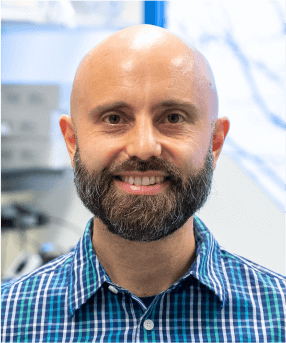- Homepage
- Programme
- Registration
- Practical Guide
- About Neuronus
University Clinic Düsseldorf, Heinrich Heine University, Germany

Mitochondria are central for energy production and metabolic homeostasis in all multicellular eukaryotes. Viable mitochondria are critical for cellular function. Brain is one of the structures highly dependent on mitochondrial energy metabolism and disruption of mitochondrial function has been identified as an important contributor to the pathogenesis of variety of neurological conditions, including developmental delays, learning disabilities, stroke and neurodegeneration. In recent years extensive efforts have been made to better understand the molecular bases of mitochondrial dysfunction in neuropathologies and propose novel treatment strategies.
Speakers of the symposium focus their research on studying mitochondria. Aleksandra Stawikowska is an early-career scientist and runs her PhD project under the supervision of Dr Magdalena Dziembowska (CeNT, Warsaw) whose research on the importance of local translation of mitochondrial proteins for proper synaptic functions won the 2021 Parnas Award. Aleksandra will present her research on the ultrastructure of synaptic mitochondria in Fragile X syndrome.
The invited speaker of the symposium – Dr Alessandro Prigione is well known for his pioneering research, focused on the dissection of the mechanisms underlying the neuronal pathology caused by mitochondrial disorders and investigation of the importance of mitochondrial impairment in early-onset neurodegeneration. To tackle these burning questions Dr Prigione utilizes the state-of-the art tools and models, including the CRISPR/Cas9-based genome engineering, iPSCs and 2D and 3D organoids. I am convinced that the opportunity to discuss and exchange views with Dr Prigione will be a great inspiration for early-career scientists.
Metabolism is essential for providing the energy necessary to ensure proper cellular function. Mutations in genes regulating this process lead to inherited metabolic disorders that can be organ-specific or multi-organs. Neonatal screenings can identify the presence of a metabolic disorder. However, therapeutic opportunities are only available for a small number of these disorders. Among incurable inherited metabolic diseases, mitochondrial diseases represent a major therapeutic challenges, given that they can be caused by mutations in oxidative phosphorylation genes that are encoded by either the mitochondrial DNA (mtDNA) or the nuclear DNA (nDNA). This fact hampers the generation of effective model systems, given the challenges associated with mtDNA engineering.
In this talk, I will first summarize how stem cell metabolism has emerged as a key aspect associated with the modulation of cell fate transition. I will then present our efforts in using patient-derived induced pluripotent stem cells (iPSCs) to study mitochondrial diseases. We focus primarily on Leigh syndrome, which is the most frequent and most severe mitochondrial disease affecting 1/40,000 newborns. We show that neuronal cultures and brain organoids derived from Leigh syndrome iPSCs can be used as model systems to investigate the disease mechanisms and to carry out phenotypic compound screenings. Our data pave the way to the identification of disease-modifying therapies for currently incurable mitochondrial disorders.